Cornell on Fire Weekly 4/3/24
Dear all,
Because the hundreds of you on this list have never met one another, we wanted to share some inspiring words from four of your fellow listserv members.
Why now? Each story below offers a meditation on risk. They are timely offerings as the world's warming accelerates at an unprecedented and unexplained rate. As we careen into uncharted territory, the risks associated with business-as-usual, including Cornell's, are breathtaking.
One Cornell staff member sat down for coffee with Cornell on Fire yesterday. She got right to it: "I love my sustainability-oriented job, but I know the change we need will not come through my job. We are treating this like a technological problem, pretending that we can geoengineer this problem away, when what we need to do is change everything. I care about all precious life on this planet. I am willing to take risks to live in integrity."
An untenured faculty member spoke to Cornell on Fire about climate justice. He noted, "I occupy a privileged position in a destructive system. If I'm not taking risks, I'm doing something wrong." He spoke of "two dials" for risk: what you're working to stop, and what you're willing to do to stop it. "Nothing is risk free. Every path has risk. Doing nothing has a 100% chance of climate catastrophe. We are speeding over the cliff. So you believe the risk on the climate dial is a 10. Now you have to look at the other dial: What am I personally willing to do to stop that risk? If you're only willing to turn your own risk dial to 1 or 2, then you don't really believe what you say about climate risk being a 10. Because here's the punch line: There's only one dial."
Cornell Professor Robert Howarth was just featured in the Wall Street Journal for his research on methane emissions and its implications for policy. Fossil fuel companies have initiated a comically hypocritical and baseless campaign to question his research. Howarth's response? He doesn't care. “Albert Einstein spoke extensively about the moral obligation of scientists to push their information into the policy,” he said. “It’s part of who I am.”
Thank you, Bob, friends, and everyone on this list. Thank you for standing up and calling on Cornell to take courageous action for the climate. By telling the truth and acting on it, you make the future less risky for us all.
Our fourth story is from a well-known climate activist and academic. He told us, "Good luck with students and community members, but it's hopeless to organize academics. They are too bourgeois to do anything for climate justice. They won't risk a thing."
We have good news: Times are changing. Even those most privileged are starting to understand that the minor personal risks that might be associated with speaking up for climate accountability at Cornell are nothing compared to the risks that follow from doing nothing. In fact, Cornell's own leaders privately acknowledge that Cornell will only meet its climate goals if the community holds them accountable. Speaking up for climate accountability is part of our job as members of this community.
As global warming spins out of control, take a look around you at the people who appear to be chugging along with their business-as-usual lives. Most of them are deeply worried. They want real climate action. They are just waiting for the right moment.
That's why we shared these stories from your listserv fellows: This is the right moment. Anything you can do today will be ten times more effective than anything you do ten years from now, when it may be too late. So consider the following propositions, multiply their benefits by ten, and plan yourself around it:
Reach out to any climate justice group in Ithaca and tell them you want to help.
Walk out of classes, work, and labs to declare a climate emergency on April 22 for Reclaim Earth Day.
Tell Cornell you want climate accountability and climate action by signing our demands.
Join our 6:30p meeting tomorrow (Zoom link here).
Continue your own work for social justice, racial justice, class justice, and Indigenous justice -- it is all climate justice.
We hope you get a chance to meet one another soon.
Yours,
Cornell on Fire
